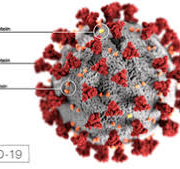10 Project Management Tips Every Non-Profit Manager Should Know
A project manager has a lot of responsibility.
They have to ensure that they meet the desired outcome. They have to manage their time, people and figure out how to manage a budget. There’s a lot that goes into a project manager, especially at nonprofits.

There’s also a need to know the best nonprofit project management tips in order to achieve the most success.
Here’s are 10 project management tips every non-profit should know.
1. Discuss the Scope of the Project
The scope of the project is what goes into it in order to achieve the most success.
As a project manager for a nonprofit, you need to figure out exactly what you are doing. When you have a clear idea of what to do, it’s easier to help a nonprofit that is either just starting out or has been around for years.
Also, a nonprofit may not have a project manager, at least initially, because it’s just starting out. It’s gathering interest from the community. But as nonprofits expand, there’s more of a need for nonprofit project managers.
The scope of the project should include deliverables. These are the outcomes of any project. This is what you need to deliver by a specific time frame.
Another part of the scope is the available resources you have to complete this project. You need to know what kind of tools are at your disposal so you can complete the project.
Communicate with nonprofit leaders to get the deliverables and know your resources, it will help you become more successful as a non-profit manager.
2. Figure Out How to Resolve Any Problems
As a non-profit manager, you also need to figure out how to resolve issues. If there’s an issue between two people on a team, it’s your responsibility to resolve it.
You need to figure out what issues may arise and what can delay the project you are working on for the non-profit.
3. Have Expectations
Another project management tip is to set expectations. You should set expectations with those who work with you at the non-profit.
You want people to know what your goals are and what how successful the non-profit can be if it meets these goals. That’s why it’s important to lay down expectations.
These expectations should be a guide for a non-profit. They should help others understand what they need to accomplish each day.
4. Know the Risk
There’s always a risk of a project failing. There’s a risk of a fundraiser going completely wrong.
You can’t ignore this consequence. You have to know where in the project the most risk could happen. You have to assess what could make a project fail. When you assess risk, you better know how to prepare for it.
You know what to do in case something goes wrong. You know how to achieve the goals of a non-profit while considering the risk.
5. Anticipate Any Changes
In addition, to risk, you should also expect changes. A non-profit may have to change venues or something else.
Changes can derail a non-profit project unless you know how to prepare for them. That’s why you should anticipate any changes throughout the
6. Help Others Succeed
Another critical part of having an effective project management system is knowing how to help others succeed.
If you are the non-profit project manager, you are responsible for making sure everything runs smoothly. In order for that to happen, you need to make sure that everyone else has the tools necessary to succeed.
You not only want to be encouraging, but you also want to be communicative about progress and ensure everyone knows what they are trying to achieve.
7. Have Mini-Goals
Mini-goals helps give you something to track. You can track your daily to weekly goals, which are considered smaller than having monthly or yearly goals.
As a project manager for a non-profit, you want to have makes sure you are fulfilling your smaller goals because that will ultimately help you accomplish your major objective.
8. Be Organized
A critical part of project management is staying organized. You not only have to know everyone’s roles and make sure everyone is on task, but you also have to run events. You are responsible for making sure an event is run smoothly.
To help you stay organized as a non-profit project manager, you should consider strategies to help keep you organized. Have an online calendar, a checklist, social media updates, and anything else that helps you be more organized.
9. Have the Right Tools In Place
As a project manager, you also need to have the right tools to help you stay organized and productive.
Consider using apps like Trello, Evernote, and other notetaking apps. Another helpful software is Slack, which can help you communicate with those involved in the non-profit, especially if they are working remotely.
10. Know Your Limit
The final tip is to know your limit as a project manager. Being a project manager of a non-profit or anything requires a lot of work.
You have to manage others and you’re responsible for the success and failures of any events. That’s why it’s important to ask for help. Know how you can help others.
Now You Know the Best Project Management Tips
These are the best project management tips. They can give you insight on what to do for a non-profit when it comes to running events and making sure everyone knows their role.
In addition, these tips can also help with other businesses in addition to non-profits. They can help you develop skills that also work beyond project management.
Check out our services if you want help with your non-profit.














